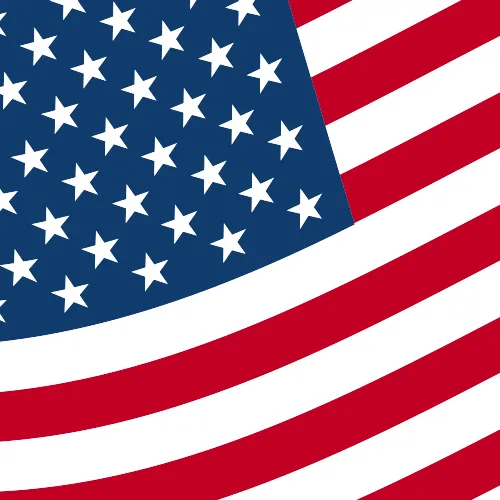These ultra-portable blocks transform any surface of any size into a play area that feels so much bigger than it really is.
From pre-K to middle school, Imagination Playground combines the sensory, motor, and intellectual development benefits of block play in a flexible and adaptable format that encourages greater collaboration and physical activity.
Blocks are incredibly valuable learning tools. For more than a hundred years, educators have used block play to help accelerate students’ cognitive and social development. Blocks play an important part in a wide variety of curricula developed by some of the world’s most noted educators, from Maria Montessori to Unit Block inventor Caroline Pratt.
Studies dating back to the 1940s indicate that blocks help absorb basic math concepts. More recently, a 2001 study in the Journal of Research in Childhood Education that tracked 37 preschoolers showed that those who demonstrated more sophisticated block play achieved higher grades in math and standardized test scores in high school. A 2007 study in the Archives of Pediatric & Adolescent Medicine revealed that children with block play experience scored higher on language acquisition tests.
Read the Research:
From Journal of Research in Childhood Education, 2001.
Read the Research:
From Journal of Research in Childhood Education, 2007.
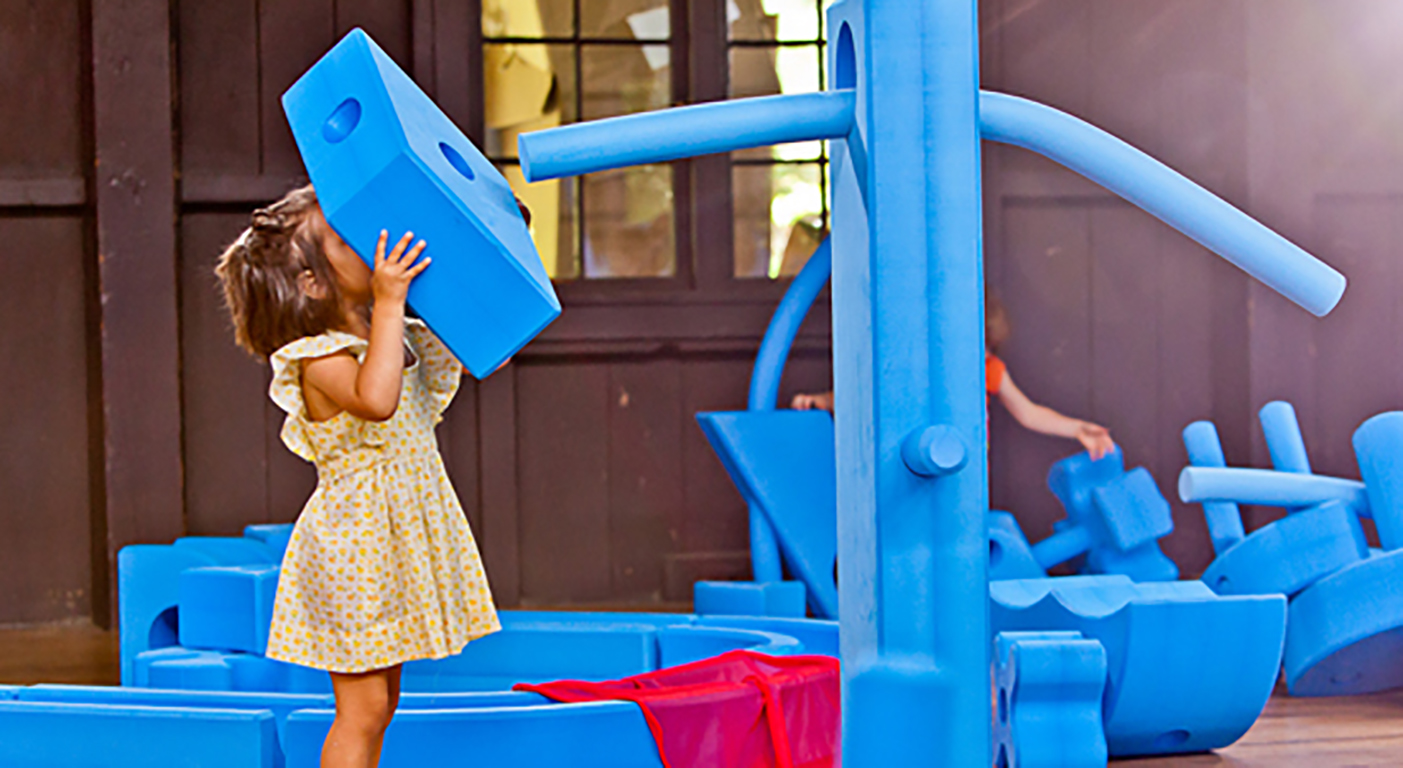
Imagine your students more focused.
Research has shown that, as part of a full school day, rest or creative periods that allow children to unwind and play have a positive impact on classroom productivity.
Imagination Playground’s oversized blue blocks are like nothing your students have ever seen before. They’re oddly formed with unique, abstract shapes that make students curious and want to start building immediately. The entire system is designed with parts that both satisfy and challenge students, providing opportunities for them to increase their frustration tolerance.
Classrooms and schools have limited options and budget for play equipment. Over the course of a school year, students can become bored with the same prescriptive toys or games they’ve already mastered. With Imagination Playground, students never build the same way twice. They stay engaged for longer periods of time and find new challenges.
Ready to Refocus the Classroom?
Imagine your students more collaborative.
Imagination Playground blocks are designed to encourage instant sharing and collaboration.The blocks are deliberately oversized, so students will be more likely to help each other with them.
Size matters—to students of all ages. Younger, smaller students may need help balancing and moving them, so they work in pair or small teams. Older, larger students quickly realize that if they want to build structures that are bigger than life, they need to plan and work together with their peers.
The social challenges and valuable lessons of cooperation and group activity are built right into the experience of playing with Imagination Playground blocks. Students assume leadership roles on their own, take responsibility for their share of the work on their own, and work to resolve disagreements on their own
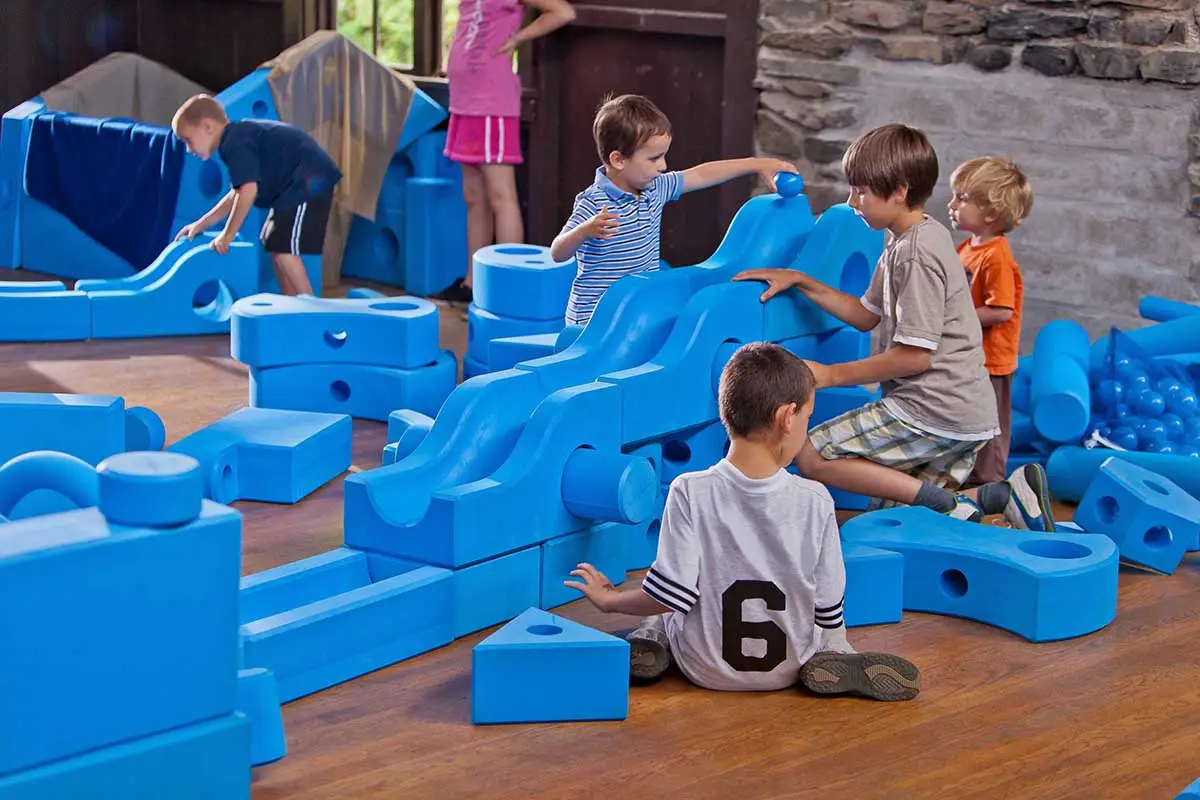
Educators' Stories
“I can’t even imagine a school today not having a set of blocks. There’s absolutely nothing I’ve seen that has that kind of return.”
Matt Goldman
Co-founder of Blue School and Blue Man Group
“The great thing about the blocks is that you don’t have to have a fancy playground for it. The blocks transform any space—a gym, a playground, an asphalt surface—into an Imagination Playground.”
Adrian Benepe
Former Commissioner of Parks and Recreation for New York City
“When I see the kids engage with this and I see them having fun and I see them problem solving, I have to believe that it’s doing something to improve the quality of their thinking.”
Dominic Randolph
Head of School at Riverdale Country School
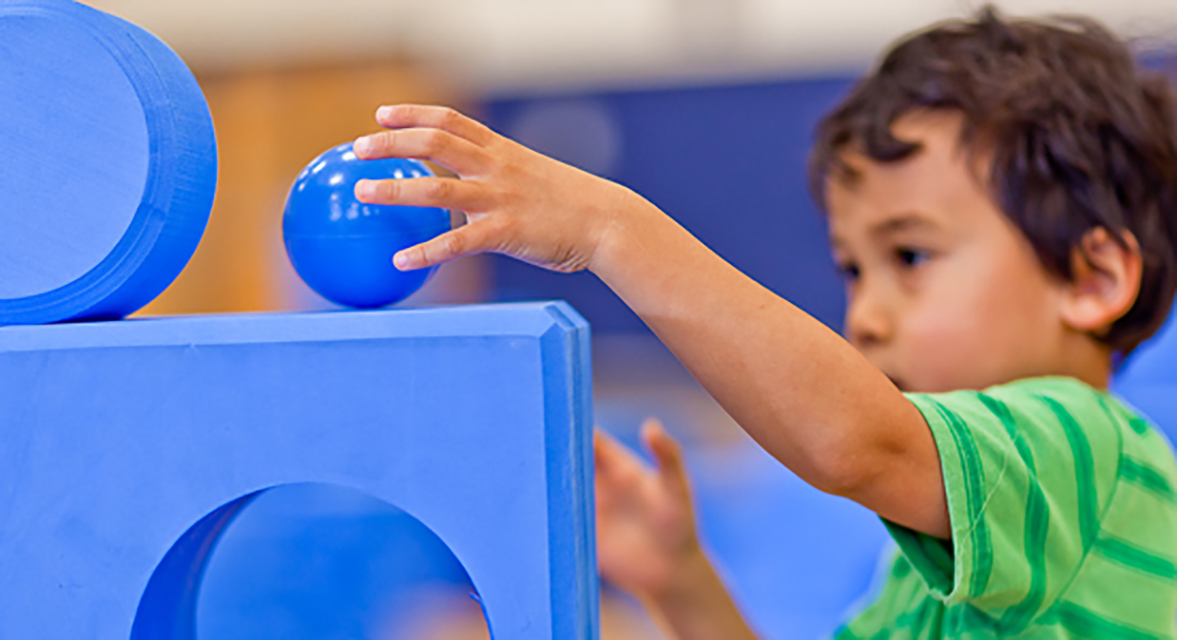
Imagine your students stronger in math and science.
Imagination Playground encourages students to exercise problem-solving skills and complex thinking. Playing with blocks involves many math and science skills that can have a real impact in the classroom, including classification, size relationships, shapes, counting, height, width, area, fractions, and ordinal and cardinal numbers.
Imaginational Playground blocks can also help students develop spatial relationships, including the concepts of interior and exterior, open and closed, and near and far. Play scenarios as simple as building a house that they can enter or creating a wall to pen in imaginary farm animals give students concrete examples of how space is defined that they can draw on later.
The potential uses for Imagination Playground blocks in math and science lesson plans is limited only by the teacher’s imagination. The simple act of matching and contrasting blocks according to their attributes can help younger students learn geometric shapes and patterns. Older students can learn to apply lessons on basic engineering, architecture, and physics using the blocks.
Can Playtime Build Future Scientists?
Imagine your students stronger in language and comprehension.
Teachers who incorporate discussion exercises with Imagination Playground play periods can help students to develop their reading readiness and language skills.
Imagination Playground’s large blue blocks can provide an introduction to symbolization and visual discrimination, two important prereading skills. Symbolization is how students learn that printed letters and words are symbols for objects and actions. Visual discrimination is developed as students learn to recognize which blocks to use and match them with existing structures.
Language and new words emerge as students talk about what they are building and engage in dramatic play with their finished structures. This can have a profound impact on not only their language skills, but also their self-confidence.When students are encouraged to talk about what they’ve created, they get to express their own ideas based upon their own experience.
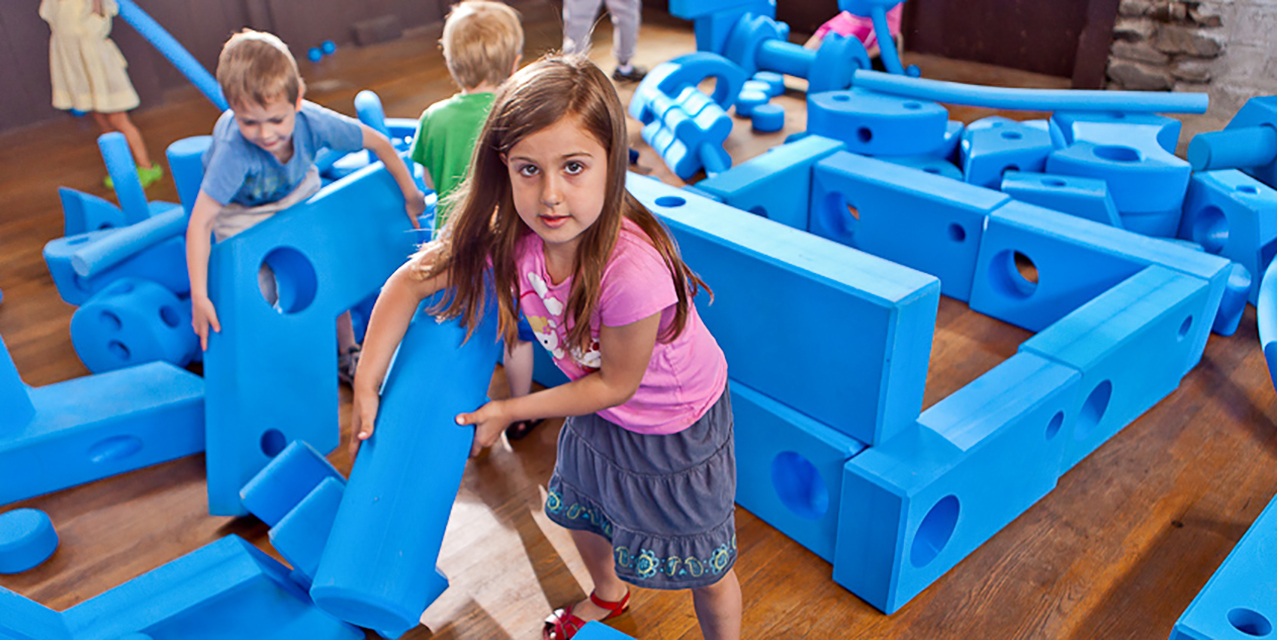
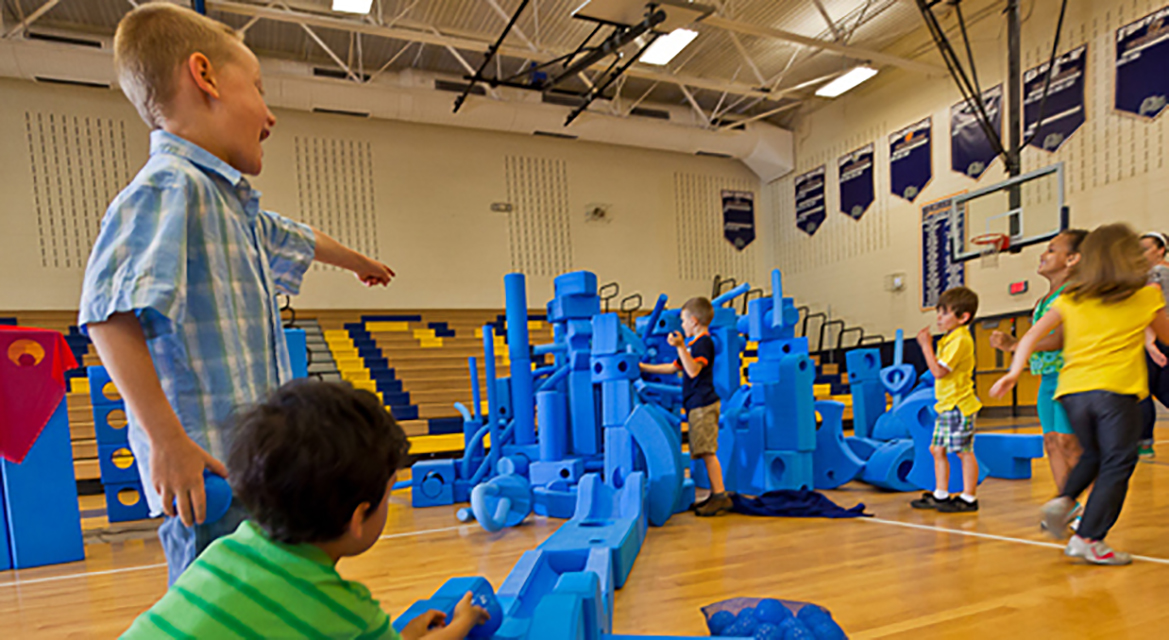
Imagine your students more expressive.
Imagination Playground blocks encourage creative self-expression in students of all ages.
With their uniform blue color, abstract shapes, and infinite configurations, Imagination Playground blocks get students’ minds working fast and keep them active. Instead of prescribing activities (climb this, sit on that), the blocks prompt students to “fill in the blank” with their own ideas.
Imagination Playground blocks can be used to make anything a student can think of. They overflow with creative potential for students to play, dream, build, and explore endless possibilities.
Children love to turn things upside down and make their own rules, but most schools are set up to discourage that behavior. Imagination Playground is a safe, structured, and productive way to give students what they want the most: a way to control and shape the big world around them.
